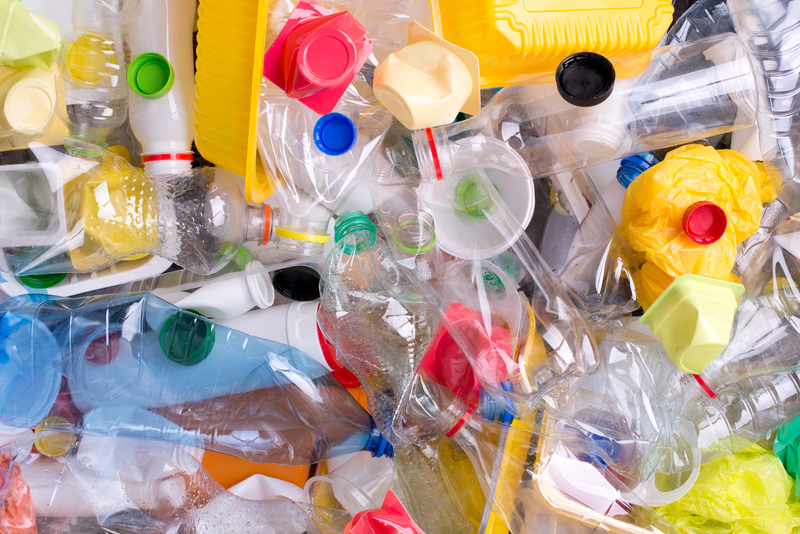
Understanding the Positive Impact of Recycling Metals
The Importance of Metal Recycling
Recycling metals is crucial in today's world, where the rapid consumption of natural resources poses significant environmental challenges. By choosing to recycle metals, we not only conserve finite resources but also promote sustainable development and reduce our carbon footprint.
Environmental Benefits of Recycling Metals
The environmental impact of metal recycling cannot be overstated. Unlike many other materials, metals can be recycled repeatedly without losing their structural integrity. Here are some key environmental benefits:
- Conservation of Natural Resources: Mining and extracting raw metals require substantial energy and water. Recycling existing metals reduces the need for such resource-intensive activities.
- Reduction in Energy Consumption: Producing new metal from recycled material typically uses less energy. For instance, recycling aluminum uses up to 95% less energy compared to producing it from raw bauxite.
- Minimization of Pollution: Extracting metals from ores generates significant air and water pollutants. Recycling reduces the production of these pollutants, helping to keep our environment cleaner.
- Decreasing Landfill Waste: By recycling metals, we contribute to less solid waste ending up in landfills, preserving landmass and reducing the impact on surrounding ecosystems.
Economic Benefits of Metal Recycling
Beyond environmental advantages, recycling metals presents numerous economic benefits. By putting a focus on recycled materials, industries can experience financial gains and foster economic growth.
Cost-Effectiveness and Job Creation
Recycling recycled metals can be more cost-effective than extracting and processing raw materials. Moreover, the recycling industry is a crucial job creator. Here are some ways how this happens:
- Lower Production Costs: Using recycled metals often costs less than new extraction methods, thus reducing manufacturing expenses.
- Creation of Employment Opportunities: From collection to processing, the recycling industry provides jobs at various levels, boosting employment globally.
- Sustainable Industrial Growth: The increased reliance on recycled materials drives innovations and sustainability in manufacturing methods, promoting long-term industrial growth.
Recycling Metals: A Global Necessity
With global populations rising and industrialization spreading, the demand for metals continues to grow. Therefore, the need for efficient recycling systems is paramount to meeting this demand sustainably. Here's a closer look at why this issue holds global significance:
Metals Commonly Recycled
Certain metals are more frequently recycled due to their widespread use and economic value:
- Aluminum: Widely used in packaging and construction, aluminum is one of the most recycled metals due to its energy-intensive production process.
- Steel: Predominantly used in construction, vehicles, and appliances, steel recycling is essential to maintaining industrial efficiency and reducing environmental impact.
- Copper: With high conductivity, copper is vital in electrical systems. Recycling helps preserve its availability while reducing mining-related damage.
The Future of Metal Recycling
The future implications of metal recycling are promising, with innovations and technological advancements paving the way for more effective systems. Here are some trends expected to shape the industry:
Technological Advancements in Metal Recycling
Advances in technology are revolutionizing how metals are recycled, making the process more efficient and less costly.
- Automated Sorting Systems: Modern recycling plants are using AI and robotic systems to efficiently sort and clean metals, improving the quality and value of recycled materials.
- Innovative Smelting Techniques: Emerging smelting technologies are allowing metals to be refined more cleanly and efficiently than ever before.
- Blockchain for Supply Chain Transparency: The integration of blockchain technology is enhancing the traceability of recycled materials, ensuring responsible sourcing and recycling practices.
Challenges and Solutions
Despite the benefits, metal recycling faces challenges that need to be addressed to ensure its effectiveness and sustainability.
- Collection Efficiency: Innovative community programs and incentives are needed to increase participation rates and improve collection methods.
- Quality Control: Developing technologies to improve the purity of recycled metals can enhance their marketability and value.
- Policy and Regulation: Governments must continue to create favorable policies and enforce regulations that encourage metal recycling, along with subsidies or tax incentives for the industry.
Conclusion: The Indispensable Role of Metal Recycling
Recycling metals is a powerful strategy to conserve resources, protect the environment, and stimulate economic growth. It provides an essential balancing act between our consumption patterns and the planet's finite resources. As we advance, the focus on sustainable practices and innovations in the recycling industry becomes imperative for a sustainable future.
By understanding the positive impact of metal recycling, individuals and businesses alike can make more informed and responsible choices that contribute to a healthier planet.
